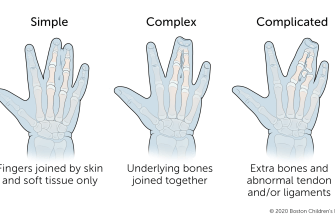Coma is a state of unconsciousness where an individual is unresponsive to external stimuli and unable to wake up. It is a serious medical condition that can have various causes and requires immediate medical attention. In this article, we will explore the causes and treatments for eventually coma, as well as the symptoms, prognosis, awareness, support, and rehabilitation associated with this condition.
Causes of Coma
Coma can be caused by a wide range of factors, including:
- Traumatic brain injury: Severe head injuries resulting from accidents or falls can lead to coma.
- Stroke: A disruption of blood flow to the brain can cause coma.
- Brain hemorrhage: Bleeding in the brain can result in coma.
- Infections: Certain infections, such as meningitis or encephalitis, can lead to coma.
- Metabolic disorders: Conditions like diabetic ketoacidosis or liver failure can cause coma.
- Toxic exposure: Ingesting or inhaling toxic substances can result in coma.
Symptoms of Coma
The symptoms of coma include:
- Unresponsiveness: The individual does not react to external stimuli, such as touch or sound.
- Abnormal eye movements: The eyes may be closed or open without response.
- Irregular breathing: Breathing may be shallow, rapid, or irregular.
- Loss of reflexes: The person may not exhibit reflexive responses, such as blinking or swallowing.
- Changes in vital signs: Blood pressure, heart rate, and body temperature may be abnormal.
Coma Prognosis
The prognosis for coma depends on various factors, including the cause, duration, and overall health of the individual. Some individuals may recover from coma with minimal or no long-term effects, while others may experience significant disabilities or even remain in a vegetative state.
Coma Treatment
Immediate medical intervention is crucial when dealing with coma. The primary goal of treatment is to address the underlying cause and stabilize the individual’s condition. Treatment options may include:
- Medication: Depending on the cause of coma, medications may be administered to reduce brain swelling, control seizures, or treat infections.
- Surgery: In cases where a brain hemorrhage or tumor is causing the coma, surgical intervention may be necessary to alleviate the pressure on the brain.
- Life support: Comatose individuals may require life support measures, such as mechanical ventilation or feeding tubes, to sustain vital functions.
Coma Recovery
Coma recovery is a complex and individualized process. Some individuals may gradually regain consciousness and progress through different stages of recovery, while others may experience a more prolonged or incomplete recovery. Rehabilitation plays a crucial role in coma recovery and may involve:
- Physical therapy: To improve mobility, strength, and coordination.
- Occupational therapy: To regain daily living skills and independence.
- Speech therapy: To address communication and swallowing difficulties.
- Psychological support: Coma and its aftermath can have a significant emotional impact on both the individual and their loved ones. Counseling and support groups can help navigate the challenges.
Coma Awareness and Support
Coma awareness and support are essential for both the individuals in coma and their families. It is crucial to educate the public about coma, its causes, and the potential for recovery. Support groups and organizations dedicated to coma provide valuable resources, information, and emotional support to those affected by this condition.
Coma Rehabilitation
Coma rehabilitation focuses on helping individuals regain lost functions and adapt to any disabilities resulting from the coma. It is a multidisciplinary approach that involves various healthcare professionals, including:
- Physiatrists: Medical doctors specializing in physical medicine and rehabilitation.
- Physical therapists: Experts in improving physical function and mobility.
- Occupational therapists: Professionals who assist in regaining daily living skills.
- Speech-language pathologists: Specialists in addressing communication and swallowing difficulties.
- Psychologists: Mental health professionals who provide counseling and support.
Coma rehabilitation programs are tailored to the individual’s specific needs and may include a combination of therapies, assistive devices, and adaptive techniques to maximize recovery and enhance quality of life.
In conclusion, coma is a serious medical condition with various causes and treatment options. Immediate medical attention is crucial when dealing with coma, and the underlying cause must be addressed. Coma recovery is a complex process that may involve rehabilitation and support from healthcare professionals and loved ones. While the prognosis for coma can vary, it is essential to remain hopeful and provide the necessary care and support to individuals and their families affected by this condition.








